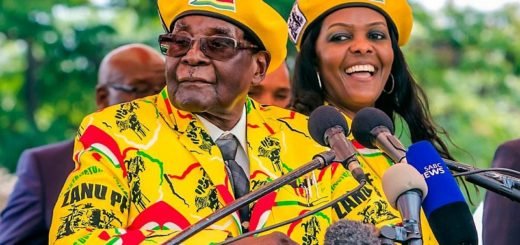Growing relations between the United States and Taiwan agonizes China

REUTERS/Stephen Lam
China is becoming increasingly paranoid about the growing relations between the United States and Taiwan. Already in the middle of a trade war with the US, China “cannot accept” the growth in the two countries’ relations, said the head of the Chinese Government’s Taiwan Affairs Office.
Analysts believe that the increasing relations may cause a nervous Beijing to retaliate. This situation began on the 8th of July when two warships from the United States were given passage through the ocean that separates Taiwan from China. China, who has always seen Taiwan as a part of its territory resents the US support of the said nation. The relations between the two countries are on the verge of being improved ever since Taiwan President Tsai Ing-wen assumed office in 2016 followed by last year’s election declaring Donald Trump as the US President. Said Gratiana Jung, a senior political researcher with the Yuanta-Polaris Research Institute think tank in Taipei, “After the new governments of the U.S. and Taiwan formed after Trump and Tsai Ing-wen took office, the situation is definitely one that the Chinese do not want to see.”
According to the Ministry of Defence in Taipei, two US warships, the USS Mustin and USS Benfold sailed through the Taiwan Strait. Although this action has a precedent, what made it different this time was the public noting of the event by Taiwan and their pledge to “perfect its responsibilities as a regional player.” Reports from Washington reveal that the US Department has requested that the new de facto embassy compound in Taipei be guarded with help from the US Marines. China would see a deployment of Marines in Taiwan, even if it is just to defend U.S. property, as a “permanent upgrade” in relations. Andrew Yang, secretary-general of the Chinese Council of Advanced Policy Studies think tank, believes that this voyage of the two ships may have been the US’s way of a show of strength to China when it comes to the new relations between the Taiwanese and the Americans.
Joanna Lei, the chief executive officer of the Chunghua 21st Century think tank in Taiwan said that Washington sees Taiwan as part of its “pearl chain” of allies that support the U.S. aims in the Asia Pacific. If this indeed leads to fruition of those plans, it could result in the containment of China’s expansion. China’s Taiwan Affairs Office Director Liu Jieyi said in response to the warships, “Absolutely you don’t want anyone to help the United States play a Taiwan card, hurting the people on both sides and the interests of Taiwanese people.”Shane Lee, a political scientist at Chang Jung Christian University in Taiwan said, “Of course, China doesn’t want Taiwan to get closer to the U.S.”
Another growing concern for the Chinese officials is the US military which is turning out to be a massive thorn in China’s path of bringing Taiwan under its flag. Taiwanese President Tsai Ing-wen said on Monday that she is seeking to increase military spending. The United States Parliament will go over her proposal of increasing the 2019 defence budget by 5.6 per cent to NT$346 billion (US$11.3 billion). While attending a naval ceremony and subsequently announcing the new defence spending plan, Tsai said, “There have been many changes in international and regional situations, and our national security is faced with more obvious and complicated threats.” The proposed defence budget would amount to almost 2.2 per cent of Taiwan’s gross domestic product. Last year’s military budget rose by just 1.9 per cent from 2016. Approximately1/5thof the 2019 budget would be spent on ‘defence self-sufficiency’ projects. To further the warming of relations between the two countries, the United States government approved a licence required to sell submarine technology to Taiwan this year.
However, it is safe to say that some believe Donald Trump is using Taiwan to fluster China into giving concessions on trade after he proposed tariffs against Chinese goods that are sold in the United States.
*Neha Hardikar is a Research Intern at The Kootneeti


















